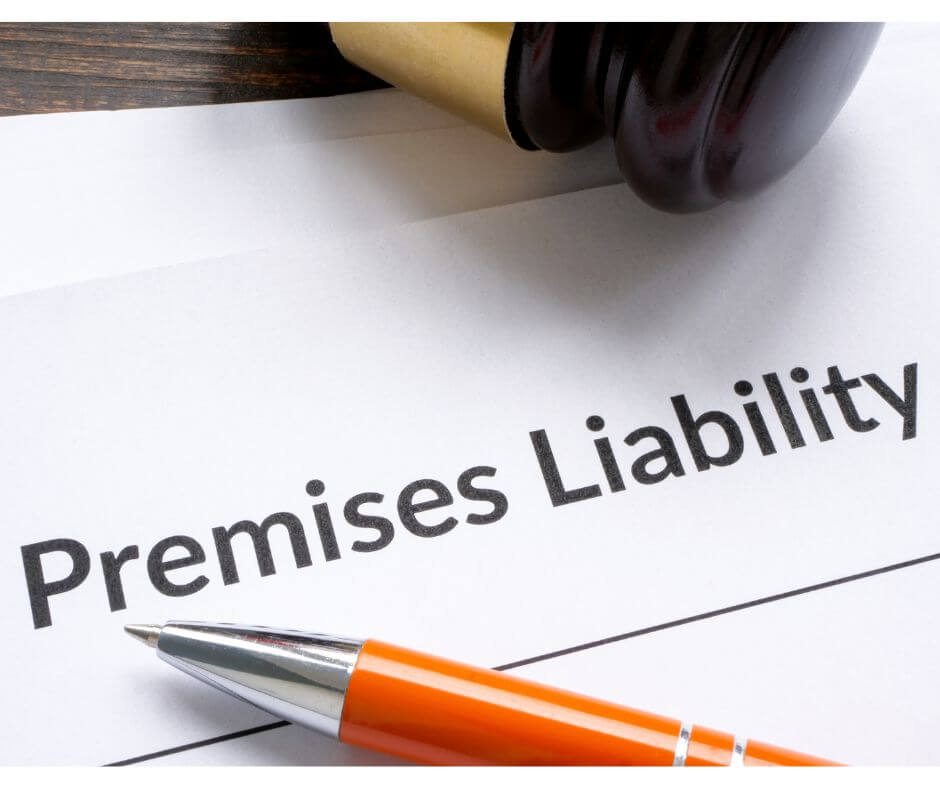
If you recently suffered an injury on someone else’s property, you might wonder if you have a legal claim.
Under the legal doctrine of premises liability, property owners are liable for the injuries of others if their negligence caused the victim’s injury.
Property owners must make reasonable efforts to keep their property safe in Georgia.
You may have a legal claim if you were injured on the property due to the owner’s negligence. Consult an attorney who is an expert in premises liability in Georgia, like the ones at MG Law, to learn if you have a case.
Reach out to us online or call (770) 988-5252 today for a free consultation.
What Is Premises Liability?
Premises liability in Georgia is the legal responsibility of a property owner to maintain a safe environment for those who enter the premises. Property owners are not responsible for all accidents on their property, but legal consequences may arise if their negligence or failure to exercise reasonable care causes someone’s injury.
Under Georgia premises liability law, OCGA 51-3-1, a landowner must “exercise ordinary care” to keep the property and its approaches (access points) safe for visitors induced or invited onto the property. That means that if a property owner knows of a certain danger, they must warn visitors to their property and or make repairs. The exercise of ordinary care also means that if the property owner could have discovered the danger by routine inspection, the law will assume they had knowledge of the danger.
Types of Visitors
The landowner’s duty of care and responsibility depends on the type of visitor. Under Georgia law, there are three types of property visitors.
Invitees
Invitees have an “express or implied invitation” from a property owner to enter the premises. For example, when you enter a store with an open entrance, you enter as an invitee. Other examples of invitees include contractors, shoppers, hotel guests, diners, and clients at professional offices.
Property owners owe invitees the highest standard of care. The property owner must know about the hazards on their property, make reasonable efforts to repair or eliminate them, or warn invitees of their existence.
Licensees
Licensees are not customers, servants, or trespassers, and they don’t have any contractual relationship with the premises owner. Licensees are not invited onto the property, but their presence is typically allowed and should be reasonably expected. This type of visitor is on the property for their own interests, convenience, or gratification.
An owner owes a licensee a duty to not wantonly and recklessly expose them to hidden dangers.
Trespassers
Trespassers are individuals who enter someone’s property without permission and are owed the lowest duty of care. The owner’s responsibility is not to willfully or wantonly injure the trespasser. Examples of trespassers may include burglars or hunters on land without permission.
Typically, the owner is not liable to a trespasser injured on the property unless the owner kills or seriously injures the trespasser by unjustified willful and wanton conduct.
Common Types of Premises Liability Cases
The most common causes of premises liability cases are slip and fall accidents. There are two general categories of these types of cases—static defect and foreign substance. A static defect is more permanent and may be due to poor design or failure to maintain the property over time. Spills, slippery surfaces, or debris on the floor, on the other hand, are foreign substance hazards.
Many issues can make a home, business, or land unsafe for visitors.
Hazardous conditions can occur due to poor maintenance or disrepair, building code violations, unmarked steps, slippery floors, cracked and uneven sidewalks, unsafe escalators, or deficient fire safety.
Other situations that can lead to a premises liability action include:
- Dog or other animal bites,
- Negligent or inadequate security,
- Violent crime or sexual assault,
- Failure to fence in a swimming pool or other danger,
- Defective conditions on the premises, and
- Inadequate maintenance of the property.
To prove a premises liability case, the victim must show that the owner knew of the dangerous condition and did not address it. A victim must also show the owner’s negligence caused the injury. Each case is fact-specific; you should consult a premises liability attorney to understand your rights.
Contact an Experienced Premises Liability Attorney Today
Getting injured is scary and can be devastating. Injuries not only have physical consequences but can also impact your ability to work and result in high medical bills. Hire an experienced Georgia premises liability law attorney to hold the landowner accountable for their misconduct or negligence. MG Law’s attorneys have helped hundreds of clients manage premises liability cases to recover thousands of dollars they were rightfully owed.
Our team has been recognized by the National Trial Lawyers, 40 Under 40, and Top 100 Trial Lawyers. MG Law has a 10/10 rating on Avvo and is rated AV Preeminent by Martindale-Hubbell. Our team will review the facts of your case, develop a sound legal strategy, and advocate zealously on your behalf.
Contact us online or call (770) 988-5252 today to learn how we can fight for you during your free consultation.

